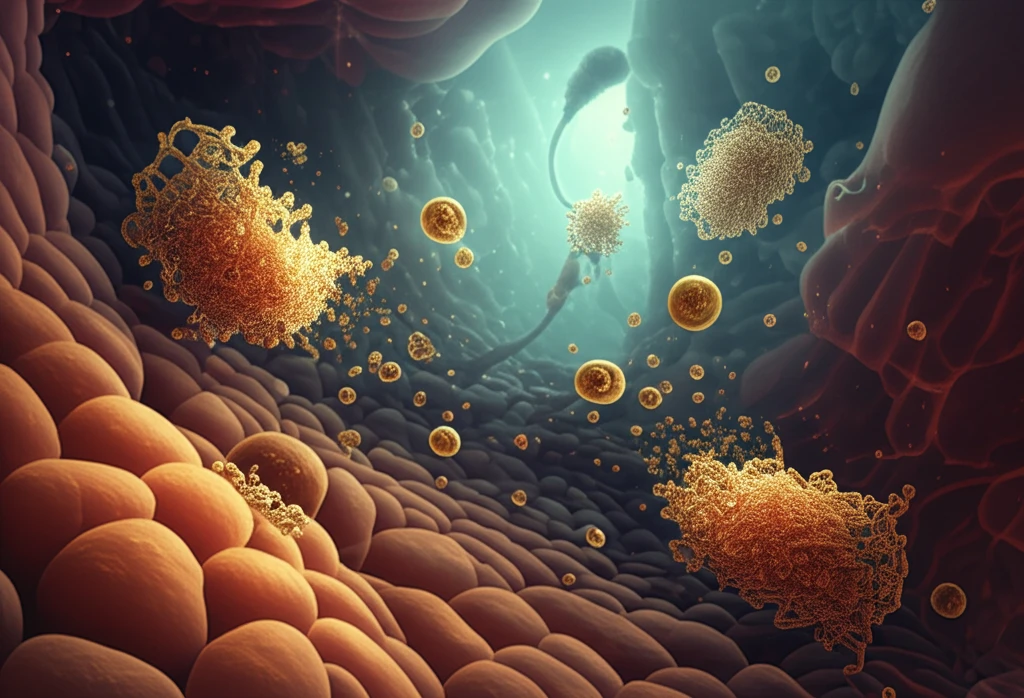
Unlock the Power of Enzymes: How to Harness Beta-Glucanase for a Healthier, More Sustainable Future
"Discover how beta-glucanase enzymes, derived from common fungi, are revolutionizing industries from food production to sustainable waste management."
In our ever-evolving world, the quest for sustainable and efficient solutions has led us to explore the hidden potential within nature itself. Among these natural wonders, enzymes stand out as biological catalysts capable of accelerating specific reactions with remarkable precision. Beta-glucanases, a specific class of enzymes, are generating significant buzz for their diverse applications and potential to revolutionize various industries.
Beta-glucanases are enzymes that break down beta-glucans, which are complex sugar molecules found in the cell walls of plants, fungi, and bacteria. These enzymes play a crucial role in breaking down complex carbohydrates into simpler sugars, unlocking their potential for various applications. From improving the digestibility of animal feed to enhancing the clarity of beer, beta-glucanases are proving to be versatile tools in modern biotechnology.
This article delves into the fascinating world of beta-glucanase enzymes, exploring their origins, functions, and the myriad of ways they are being harnessed to create a healthier and more sustainable future. We'll uncover how these enzymes are transforming industries, reducing waste, and paving the way for innovative solutions.
What are Beta-Glucanases and Why Should You Care?

Beta-glucanases are hydrolytic enzymes, meaning they use water to break down chemical bonds. In this case, they target the bonds within beta-glucans. These complex carbohydrates are abundant in cereal grains like barley and oats, as well as in the cell walls of certain fungi. The enzyme's action results in breaking down the glucan molecules, which lead to production of D-glucose.
- Food and Beverage: Beta-glucanases improve the texture and clarity of beverages like beer and juice. They also enhance the digestibility of animal feed, making nutrients more accessible.
- Textile Industry: They can be used in the processing of cotton and other plant-based fibers, improving the texture and quality of fabrics.
- Detergents: Beta-glucanases can act as effective additives in laundry detergents, assisting to effectively break down dirt and grime of fabrics.
- Waste Management: By breaking down plant matter, beta-glucanases contribute to more efficient composting and waste treatment processes.
- Biofuel Production: Beta-glucanases assist to the saccharification of agricultural and industrial wastes to provide glucose syrups for animal use.
The Future is Enzymatic
As research continues to uncover the full potential of beta-glucanases, we can expect to see even more innovative applications emerge. From developing novel biofuels to creating more sustainable food production methods, these enzymes hold the key to unlocking a healthier and more environmentally friendly future. Keep an eye on this exciting field as it continues to evolve and shape the world around us.
